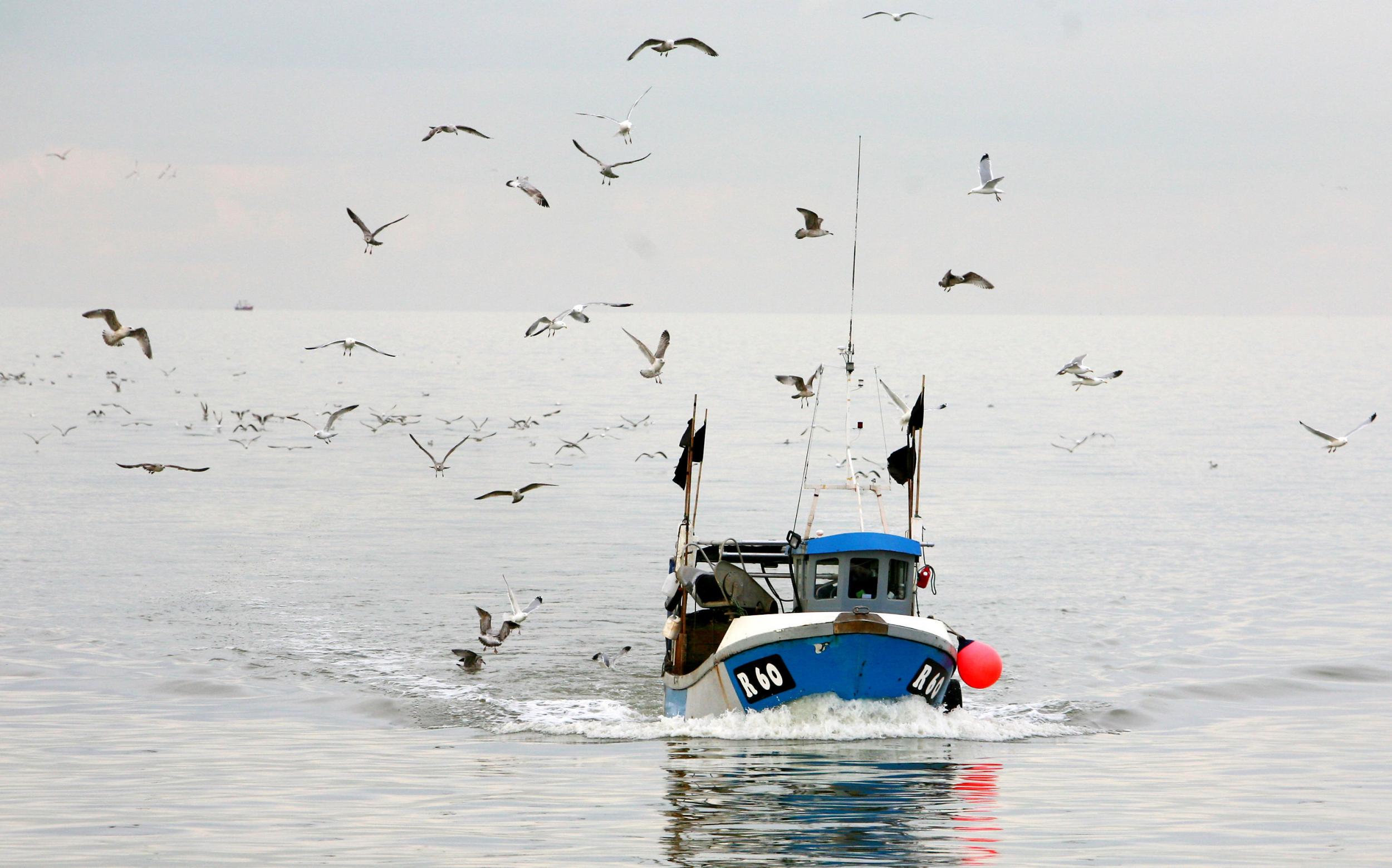North Sea cod quota halved in response to climate change and dwindling stocks
‘This year there has been some very challenging science for cod stocks,’ says fisheries minister

The amount of cod people in the British fishing industry can catch will be cut by 50 per cent next year.
Quotas for 2020 were agreed at this year’s annual EU fisheries negotiations, which concluded in the early hours of Wednesday morning.
It was the last December Council attended by the UK before it becomes an independent coastal state. It was agreed that cod quotas will be cut by 50 per cent in the North Sea, while limited quotas were agreed for cod in the Celtic Sea, Irish Sea and west of Scotland – just enough to allow the landing of accidental catch.
The Scottish White Fish Producers Association (SWFPA) said the cod quotas would make conditions “extremely challenging” for people in the industry.
However, there were increases for other species, with quotas for haddock in the North Sea rising by 23 per cent and sole in the western Channel rising by 19 per cent.
UK fisheries minister George Eustice said: “This year there has been some very challenging science for cod stocks in many parts of the northeast Atlantic and we have responded to conserve stocks.
“I know that some of the quota reductions will be very difficult for some sectors of the industry, and there has been considerable debate this year about the importance of by-catch allowances to support the delivery of the discard ban.
“However, we also know that to protect the profitability of fisheries in the future we must fish sustainably today.”
Scotland Office minister Douglas Ross said: “The UK government worked hard to secure the best possible deal for Scotland – defending the industry’s interests and the need to ensure the long-term health of fish stocks, in the face of challenging quota advice for species of great importance, such as North Sea cod.
“The great news for our fishing industry and coastal communities is that, as we get Brexit done and become an independent coastal state, we will no longer be shackled by the hated Common Fisheries Policy.
“We will control who fishes in our waters, meaning fantastic new opportunities for this hugely important sector to Scotland.”
The agreement sets fishing opportunities for the UK while it remains part of the Common Fisheries Policy.
Once the UK has left the EU, it will become an independent coastal state and negotiate on fisheries as a third country with the EU and other coastal states such as Norway and the Faroe Islands.
Mike Park, chief executive of the SWFPA, said 2020 would be difficult for his members in light of the quotas.
He said: “Cod is an important part of the mixed fishery for my members, and a reduction in what they can catch on this scale will be extremely challenging.
“Due most likely to climate change, the distribution of the species in the North Sea has changed markedly, with a pronounced northwards movement.
“It is especially disappointing that the European Commission failed to recognise the validity of the arguments made by the industry across Europe for a more gradual reduction in total allowable catch over time to aid recovery.
“In the next year, as the UK prepares to leave the Common Fisheries Policy, it is vital that the right scientific work is done to improve our understanding of the current status of the stock to enable better decisions to be taken on fishing opportunities for 2021.”
Elspeth Macdonald, chief executive of the Scottish Fishermen’s Federation, said: “The reduction in the total allowable catch for North Sea cod next year will have a serious economic impact on the Scottish whitefish sector, presenting major practical difficulties for the fleet.”
The fisheries secretary Fergus Ewing MSP, who attended the talks, said: “We worked for a deal that reflects the key principles of the Common Fisheries Policy – the need to fish sustainably while supporting the interests of coastal communities and fishers.
“Unfortunately, combined with other negotiations, the deal will struggle to deliver this for the Scottish industry.
“Worse, we now potentially find ourselves as a bystander next year, and we have had an early indication of how difficult future negotiations might be.”
However, environmentalists welcomed the decision.
Alec Taylor, head of marine policy at WWF, said: “This is a good decision, which we hope will offer this struggling North Sea cod population a much-needed chance of recovery.
“But it must be accompanied by supporting measures that are monitored and properly enforced. At a time when our seas face huge threats such as climate change and overfishing, the UK can lead the world by demonstrating sustainable, responsible management of our fisheries.”
Chris Thorne, an oceans campaigner at Greenpeace UK, said: “North Sea cod, like our oceans, are in crisis and so we welcome this decision to cut the quota, which we hope will give this species space to recover.”
The UK delegation was led by Mr Eustice, Mr Ewing, the Welsh government’s minister for Environment, Energy and Rural Affairs, Lesley Griffiths, and representatives from Northern Ireland.
PA
Join our commenting forum
Join thought-provoking conversations, follow other Independent readers and see their replies
Comments